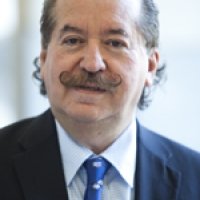Latin American Program in the News: Why is Venezuela so violent?
Venezuela, which had over 19,000 murders last year, has banned private gun ownership. Only army, police, and certain security companies will be allowed to purchase guns.
Venezuela, which had over 19,000 murders last year, has banned private gun ownership. Only army, police, and certain security companies will be allowed to purchase guns.
[...]
The Latin American nation is considered one of the most dangerous places in the world with more than 19,000 murders last year, according to police and civil society organisations.
Venezuela's murder rate is more than three times that of Mexico, and is surpassed only by El Salvador and Honduras.
Along with the murder rate, levels of robbery and kidnapping have also been going up under the rule of Hugo Chavez, the president.
"People don't blame him [Chavez], he never mentions the problems, he always blames his own ministers so he tried to avoid the confrontation with the problems .... The government since two to three years ago realised that it was a political problem but before they thought it was part of a class struggle," said Roberto Briceno-Leon, a sociologist and criminologist.
But Chavez’s opponents say these measures are only the latest in a long list of failed attempts to boost security.
[...]
Original article here.


The Wilson Center’s prestigious Latin America Program provides non-partisan expertise to a broad community of decision makers in the United States and Latin America on critical policy issues facing the Hemisphere. The Program provides insightful and actionable research for policymakers, private sector leaders, journalists, and public intellectuals in the United States and Latin America. To bridge the gap between scholarship and policy action, it fosters new inquiry, sponsors high-level public and private meetings among multiple stakeholders, and explores policy options to improve outcomes for citizens throughout the Americas. Drawing on the Wilson Center’s strength as the nation’s key non-partisan policy forum, the Program serves as a trusted source of analysis and a vital point of contact between the worlds of scholarship and action. Read more
